More than twenty years have passed, but the memory of collaborating on a collection of Vietnamese short stories with American writers and publishers is still vivid in the memories of many Vietnamese writers.
Love after the war – Contemporary Vietnamese prose (Love after War: Contemporary Fiction from Vietnam) was published by Curbstone Press in the US in 2003. To date, this is still the thickest anthology published in Europe and America, 650 large-format pages thick, a collection of short stories by 45 Vietnamese authors.
 |
| Two writers, Ho Anh Thai and Wayne Karlin in Maryland, during the time they worked on the anthology "Love after the war". |
The most comprehensive collection
A large collection like Love After War could only be published in some Eastern European countries before 1990 because of friendship, but not in the West.
Foreign readers will meet here generations of Vietnamese writers, from To Hoai to Chu Van, Nguyen Minh Chau, Trang The Hy, Ma Van Khang, Nguyen Khai, Vu Bao to Nguyen Quang Than, Le Van Thao to Nguyen Huy Thiep, Doan Le, Ho Anh Thai, Pham Thi Hoai, Tran Thuy Mai, Ngo Thi Kim Cuc, Da Ngan, then Phan Thi Vang Anh, Nguyen Thi Thu Hue, Phan Trieu Hai to Nguyen Ngoc Tu. There are deceased writers and those in their prime, writers from different regions, and many outstanding female writers.
As co-editors of this anthology, American writer Wayne Karlin and I had to write introductions to nearly 100 Vietnamese short stories so that the publisher would eventually choose half of them. We had to be satisfied with the publisher's judgment, who had a good sense of American readers' tastes.
We organized the entire short story into five parts so that this continuous structure allows readers to read from beginning to end, sequentially like a novel, imagining a part of Vietnamese social life, a part of human psychology and the mood of the time we live in. Maybe more or less the appearance of Vietnamese literature after the war.
Vietnamese literature book series and an American writer
The editor-in-chief of the book series Voices from Vietnam published by Curbstone Press is writer Wayne Karlin. He participated in translating, editing and polishing all the translations of Vietnamese books: a post-war short story anthology by Vietnamese and American writers called The Other Side of Heaven . By the way, the word heaven here does not mean paradise as some people translate, but means sky.
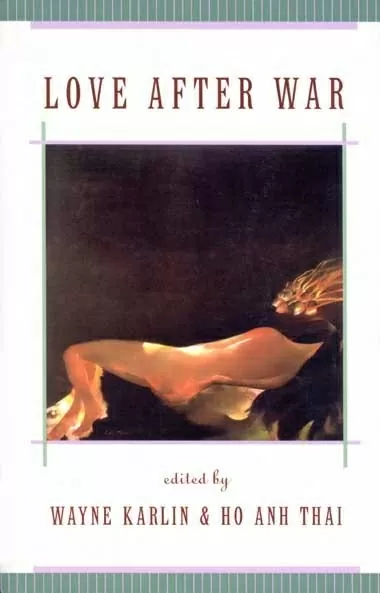 |
| Cover of the book "Love after war" |
Vietnam and America are on opposite sides of the world, now we need to build a bridge of reconciliation through literature to connect these two distant worlds.
That was Wayne Karlin's idea when he wrote the book that was voted the best anthology of 1995 by the American Literary Critics Circle.
He has collaborated with many Vietnamese and American translators to produce translations of Ma Van Khang's Upstream the Flood , Le Minh Khue's Stars, the Earth, the River, Nguyen Khai's Time , Ho Anh Thai's In the Pink Mist and The Woman on the Island , Nguyen Huy Thiep's Crossing the River , Da Ngan's Small Family , Doan Le's Cemetery of Chua Hamlet, etc.
In 1998, after publishing books by writer Le Minh Khue and Ho Anh Thai, Curbstone Press invited us to be editorial consultants for the series Voices from Vietnam , a series that lasted more than ten years with the books mentioned above.
However, the main time is spent on composing, we estimate that it will be difficult to complete the long book series.
That's why Wayne Karlin and I suggested that the publisher make an anthology, trying to introduce as many Vietnamese authors as possible, as a completion, before withdrawing to write our own books.
There are many works that we have introduced but were not accepted by the publishers, which is a pity. However, in the end, this is only the effort of individual publishers, while there is no state-level project for foreign relations through literature.
Before talking about Wayne Karlin as a professional translator and editor, let me introduce a little about his literary career.
Wayne Karlin is the author of many controversial novels such as The Cut, For Us, The Supporting Role, The Prisoners, Rumors and Tombstones, The Land of Desire, Genizah , in which Wandering Souls has been translated into Vietnamese, telling the story of the author connecting to bring a soldier's relic back to his family in Vietnam - he sacrificed when confronting an American soldier...
Wayne Karlin has won several prestigious American literary awards. He is a writer with beautiful writing style, concise language and rich rhythm.
The New York Times , a newspaper with a reputation for taste at the time, praised the above Vietnamese books as “translated into a first-rate English language.” This credit goes mainly to Wayne Karlin.
Collaboration between co-editors
I personally translated half of the anthology's nearly 50 short stories, but as editors, both Wayne Karlin and I struggled with the entire volume.
During the process of translating together, it is impossible to remember all the arguments. We are both perfectionists and of course arguments arise because of the differences between the two languages, which have many inherent differences, and the differences between the two peoples' ways of thinking.
For example, at the beginning of the story The Girl in the Lotus Pond , writer Nguyen Phan Hach wrote: “Once returning to his hometown, to avoid the sun, he set out on foot early in the morning… The early morning mist was thick. A gentle breeze carried the sweet scent of lotus. Walking in the dim moonlight, Tue saw a girl coming out of the lotus pond by the roadside…”.
Vietnamese readers can easily determine the time of this story: it is early morning, the sky is still dark, there is still mist and the moon is still there. But Wayne Karlin added two words to determine the time: That night.
I disagree, in the original it was early morning, how could it be changed to night? Wayne Karlin also maintained his opinion, American readers would not be able to imagine that early in the morning could take place in the fog, under the moonlight and with stars in the sky.
After much debate, I finally gave in. The reason: the English version is for American readers, who are rational, demanding precision in space, time, ownership… and not accepting vagueness. Of course, this is due to two different ways of thinking and receiving, but in reality, around three or four in the morning, one side can call it early that day, the other side calls it that night.
Coming to the story "Singing Rice" by Vo Thi Xuan Ha, it is true that the precise thinking of Americans also makes us pay attention. The author wrote that in that village there was a custom of holding a salt procession around the field, then people sprinkled salt in the stove, and used ashes to fertilize the rice fields to make them green.
Wayne Karlin was startled: Americans believe that salty soil is bad soil, unsuitable for farming, who would believe that? I called the author and asked her, she said it was just a village belief, like a magic spell, people did not pour salt into the fields to make the soil salty. This part could not be omitted, the translator had to be faithful. In the end, the two of us agreed to add a note about the salt procession as a belief, thereby limiting the reaction of readers of the English version.
Also in this story, Wayne Karlin commented that the title Singing Rice might be effective in Vietnamese, but in English it is poetic and too light. He suggested changing the story's title to make it more impressive to American readers: Rice and Salt .
In the story The Staircase , Nguyen Thi Thu Hue draws a scene of a Hanoi alley that we can easily imagine: “At the beginning of the alley is a pho shop. They sell illegally, so they have to hide each item in a different place. Pho noodles are hanging in the middle of the alley. At the end of the alley are two basins of muddy water and bowls floating with onions, chili, and grease.” But a person sitting far away in the state of Maryland in the US, even though he has been to Hanoi many times, would find it hard to imagine.
He asked me: Is the pho shop owner a resident of that alley or what, that he was allowed to occupy the space to sell his goods? And how did he hang the pho noodles in the alley? Americans cannot imagine occupying a common alley, blocking people from passing by, nor understand how people who only do business at a certain time of the day put their food.
I explained that the owner of the pho shop could be someone in the alley, or someone from another place who just came to sell. I also drew for him one of the ways people could hang pho noodles in the alley: nailing them to the wall, temporarily connecting a piece of string, or simply in a basket or bag…
Wayne Karlin was delighted: Can we add this sentence to the story? Of course, we had to ask Thu Hue's opinion, she happily agreed. It's all for the readers on the other side of the ocean, who still lack a lot of practical knowledge about Vietnam.
But in the following case, it is the opposite. Sometimes a concept that sounds very good here is difficult to accept on the other side. The last sentence in the story The Song and the Cry by writer Trang The Hy: "It reminds the writer never to lose his reliable support, which is the great suffering of the silent majority". I correctly changed the phrase "the silent majority" to "the silent majority".
Wayne Karlin commented: in the US, this phrase is often used by right-wing politicians as a populist rhetoric, so Americans are allergic to it. To avoid offending readers, he suggested removing the word majority, leaving the remaining sentence as “the great suffering of the silent ones”, which still retains the exact content.
As for the story “Father and I are women” by writer Vu Bao, I have read it many times, but it was only when I started translating it, pondering each sentence and each word as if I were the writer, that I discovered the small details. So small that the author did not know, the Vietnamese editor also overlooked it, and many readers also overlooked it.
But reading it through the eyes of a rational foreign reader, I could no longer ignore it. For example, this passage: “As soon as I got the room, Mi rolled up her sleeves, rolled up her pants, took a broom to sweep the house, swept the walls, hung a series of actor pictures, arranged flowers in 37mm bullet casings, nailed an anchor mirror, tore off her torn sleeve to wipe the bed, folded the square blanket and placed it neatly at the head of the bed. Mi ran to borrow a hammer to nail a hanger, stretched the curtain cord…”.
I have just marked the two nailing times and readers can easily see that the second time Miss Mi had a hammer, but what she used the first time, only the humorous writer Vu Bao knows.
Another passage, “Ngát sat on the bed angrily and shouted out”, but after only six lines of dialogue, it was “Ngát was still lying on the bed”. Of course, I had to ask the author’s opinion and turn it around like a literary gardener.
Not only that, when the English version was in Wayne Karlin's hands, he exclaimed that the story only mentioned two roommates getting married, why did the author write in the first line: "In the room of four sisters, three of them got married one after another?"
In this context, Vietnamese readers still implicitly understand that the author has the right to mention only two prominent cases among the three roommates who got married, but American readers who count clearly do not "implicitly understand" like that. In the end, we have to turn around: "all" the sisters in the room have gotten married one by one...
Thus, as co-editor, we not only have to be translators, select works, arrange stories into sections according to a relatively reasonable structure, but also have to be editors who understand the taste of readers, even have to be gardeners of literature. Surely, if readers have a bilingual comparison, they will recognize in the translation the places that the translator and editor have turned around as mentioned above.
A publisher who loves Vietnamese literature
The American education system often leaves a part of the curriculum open for schools to find additional textbooks to teach. Writer Wayne Karlin is a professor at St. Mary's University in Maryland. He and the publisher Curbstone promoted the Vietnamese book series to universities and received a warm response.
Thanks to the promotion of Wayne Karlin and Curbstone Publishing House, American universities have also expanded their curriculum to include books published in many other countries such as The Distant Times by Le Luu (University of Massachusetts Press), The Retired General by Nguyen Huy Thiep (Oxford University Press in Malaysia), The Woman on the Island and The World of the Dead by Ho Anh Thai (University of Washington and University of Texas Press), The Angel by Pham Thi Hoai (Hyland House in Australia), The Sorrow of War by Bao Ninh (Secker & Warburg in England), the poetry collection The Long Road by Nguyen Duy...
Americans rarely read translated books. Thousands of publishers, of course, are concerned with whether the printed books sell. They have no obligation to promote friendship between peoples.
Wayne Karlin found Curbstone Publishing to print Vietnamese books and officially present them on the national book market, in bookstores and online (Amazon.com). The initial print run, like any other publisher in the US, is usually 5,000 copies, but the difference is that Curbstone books are printed in successive editions every year.
Books published by universities are mainly sold only within the university system in the US and affiliated countries, with a limited quantity of 1,000 copies. The number of books published is a business secret, known only to the publisher and the tax authority, not written on the back of each book like in our country.
Curbstone Press is a non-profit publisher. The non-profit nature makes the publisher's income and royalties to authors and translators nominal. Non-profit also means that the publisher does not have to pay income tax.
In return for not having to pay taxes, they must fulfill their obligation to develop social culture by donating books to libraries nationwide, to schools...
The publisher's books are therefore printed in at least 5,000 copies and sold nationwide to cover printing, distribution and service costs, in addition to a significant number being given away to students and intellectuals.
After Curbstone Director Alexander Taylor passed away in late 2007, all Curbstone Press projects and publishing activities were transferred to Northwestern University Press.
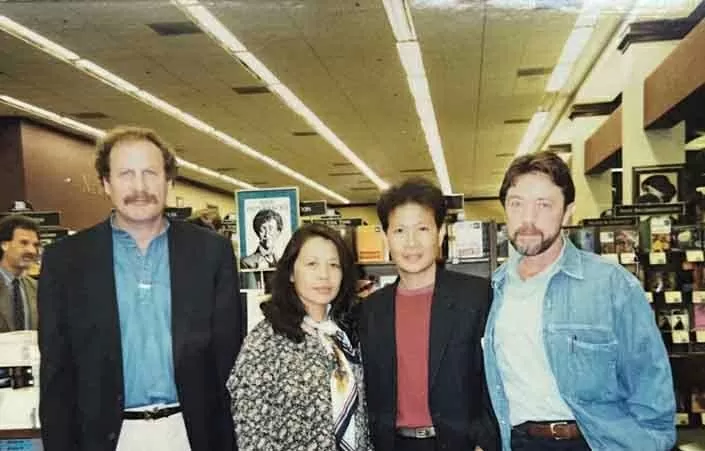 |
| The Other Side of Heaven book launch in San Jose, 1995. From left: Wayne Karlin, Le Minh Khue, Ho Anh Thai, George Evans. |
Public opinion
The collection of Vietnamese short stories was published and received positive press coverage. This is the opinion of writer Robert Olen Butler, author of the Pulitzer Prize-winning book The Scent of Strange Mountains (Vietnam theme): “Many Vietnamese writers are great authors and this English collection is the fullest expression. Wayne Karlin and Ho Anh Thai have edited and translated a masterful book that will last forever.”
The San Francisco Chronicle on November 2, 2003 commented: “Love After War is the largest anthology of contemporary Vietnamese prose in English, and there is nothing but grandeur to describe this book. The anthology can easily be compared with our much-hyped short story masters such as Raymond Carver, John Cheever, and Grace Paley, or the tasteful writers of the New Yorker and Playboy magazines. The comparison with Playboy is intentional because, contrary to the myth of communist countries, no subject is impossible for the writers here, at least in all their diverse and complex expressions of human sexual energy.”
The St. Petersburg Times on September 14, 2003 commented: “ Love after the war is a lively collection of prose by authors whose works rank among the best in world literature. As editors and translators, Wayne Karlin and Ho Anh Thai deserve a medal for bringing these works together in one anthology. Beautifully written, Love after the war shows that Vietnamese literature, and life there, is thriving.”
In 2003, the San Francisco Chronicle selected this collection as one of the 100 best books. Perhaps even in a country with a developed reading culture, it is difficult for anyone to read all 100 best books of the year. But this selection is meaningful to literary critics and editorial staff who monitor publishing in the US, and then to readers who love literature.
Source: https://baoquocte.vn/ky-uc-cua-nha-van-viet-nam-ve-chuyen-lam-sach-o-my-308134.html






![[Photo] Next to the "mountain of trash" after the flood, Tuy Hoa residents strive to rebuild their lives](/_next/image?url=https%3A%2F%2Fvphoto.vietnam.vn%2Fthumb%2F1200x675%2Fvietnam%2Fresource%2FIMAGE%2F2025%2F11%2F24%2F1763951389752_image-1-jpg.webp&w=3840&q=75)

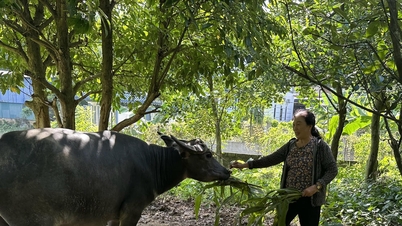

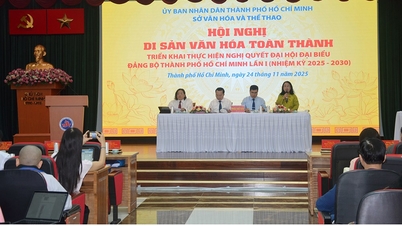

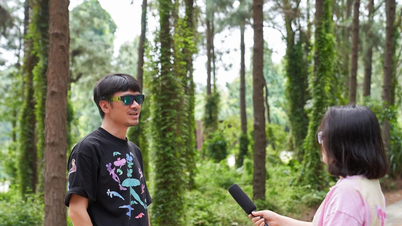

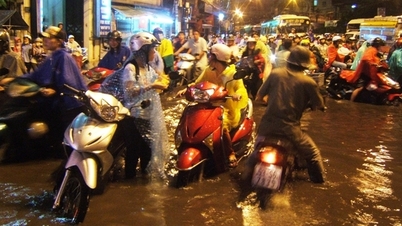

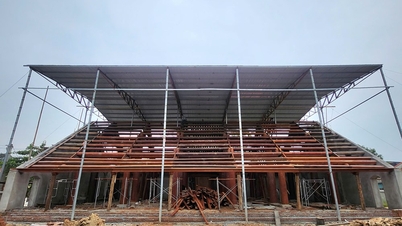
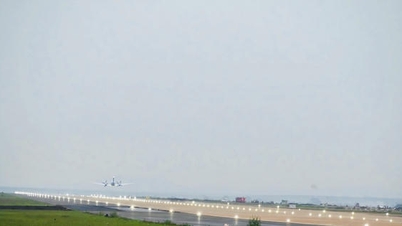




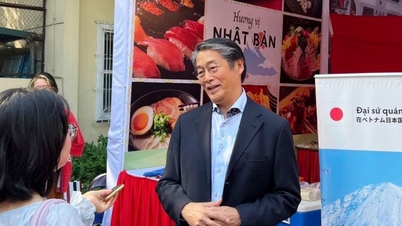

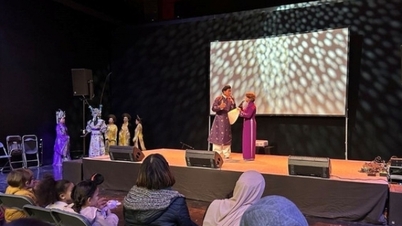
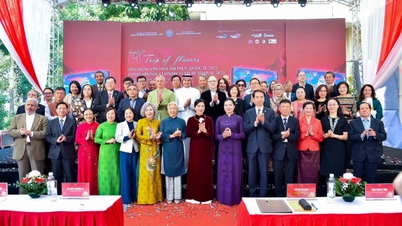
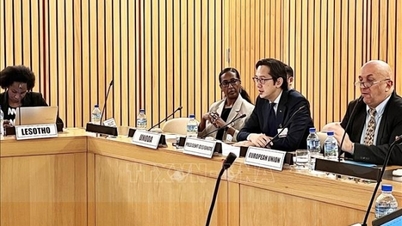
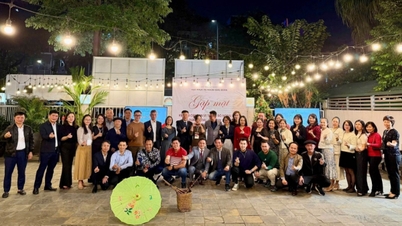

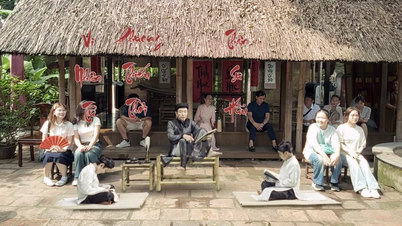

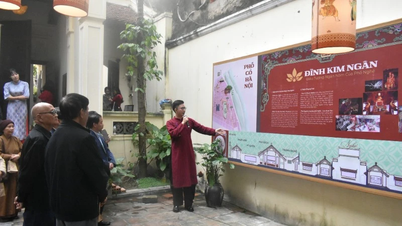





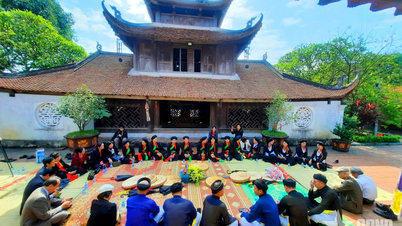



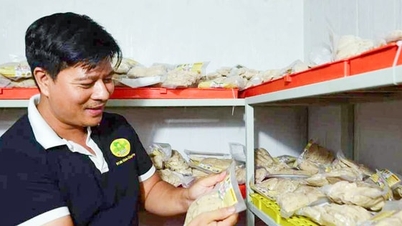






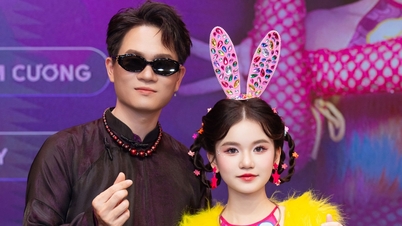



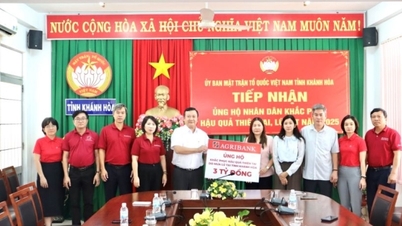

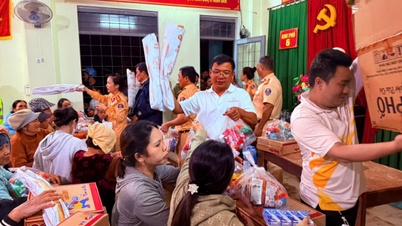









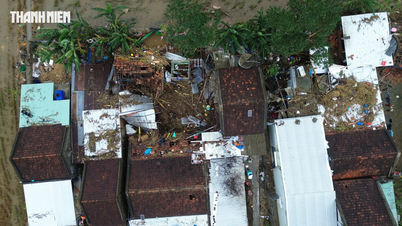


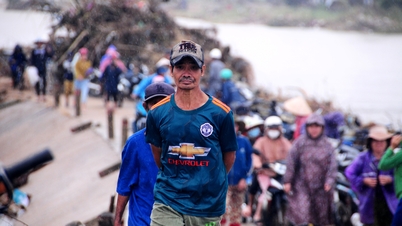
![[Photo] General Secretary To Lam attends the National Conference to review the Party's inspection, supervision and discipline enforcement work in 2025 and the 13th Congress term](https://vphoto.vietnam.vn/thumb/402x226/vietnam/resource/IMAGE/2025/11/24/1763967570884_anh-man-hinh-2025-11-24-luc-13-59-19.png)
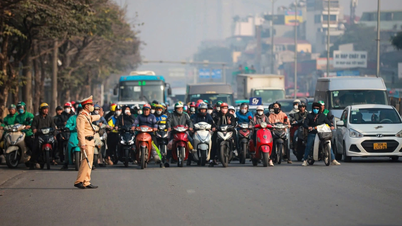

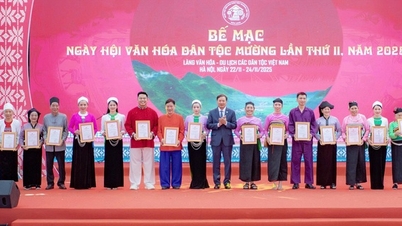

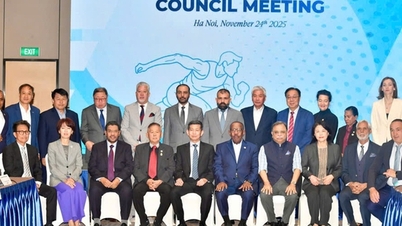



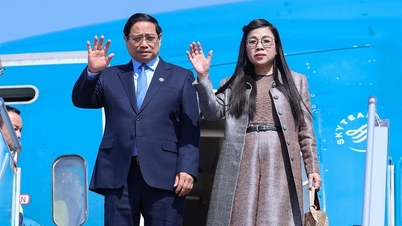
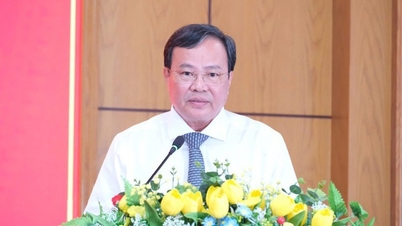
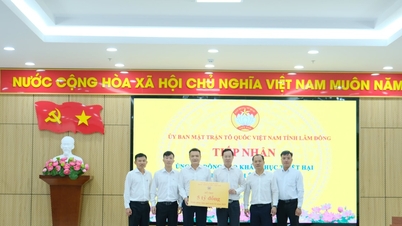

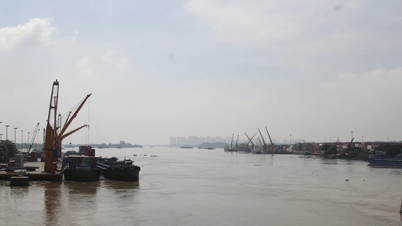



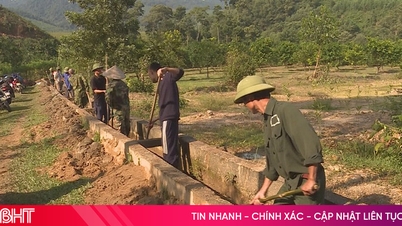


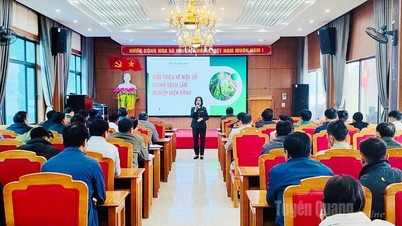














Comment (0)